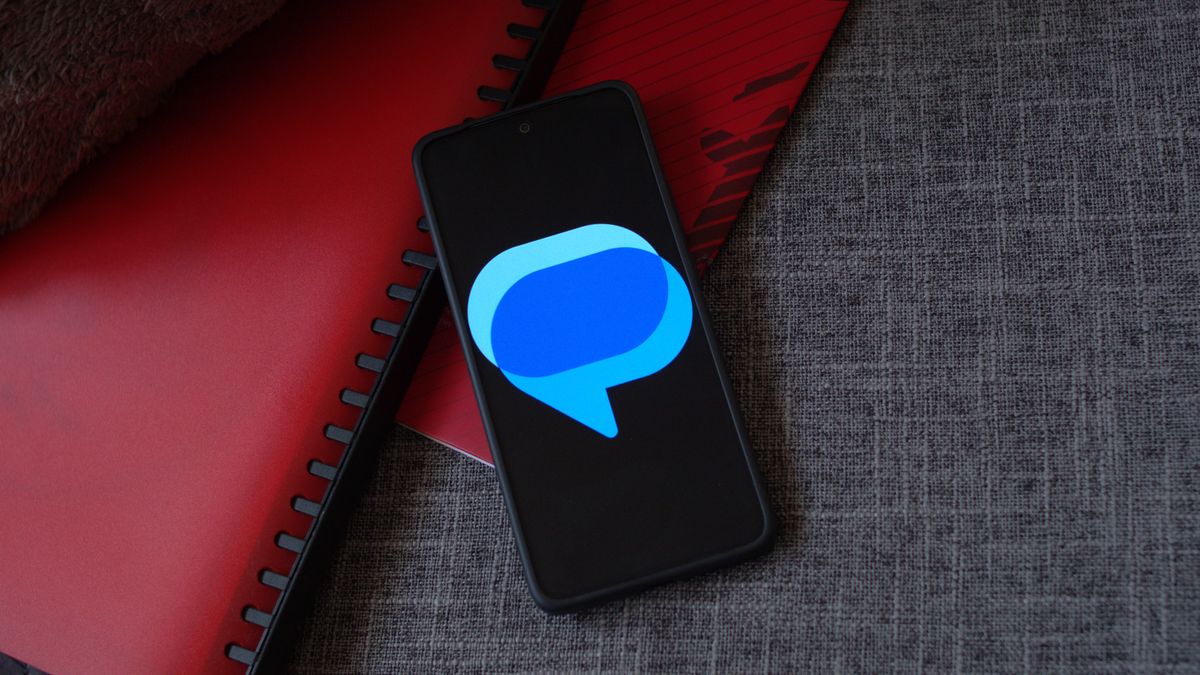Ultrahuman Ring Air vs Samsung Galaxy Ring: Which should you buy?
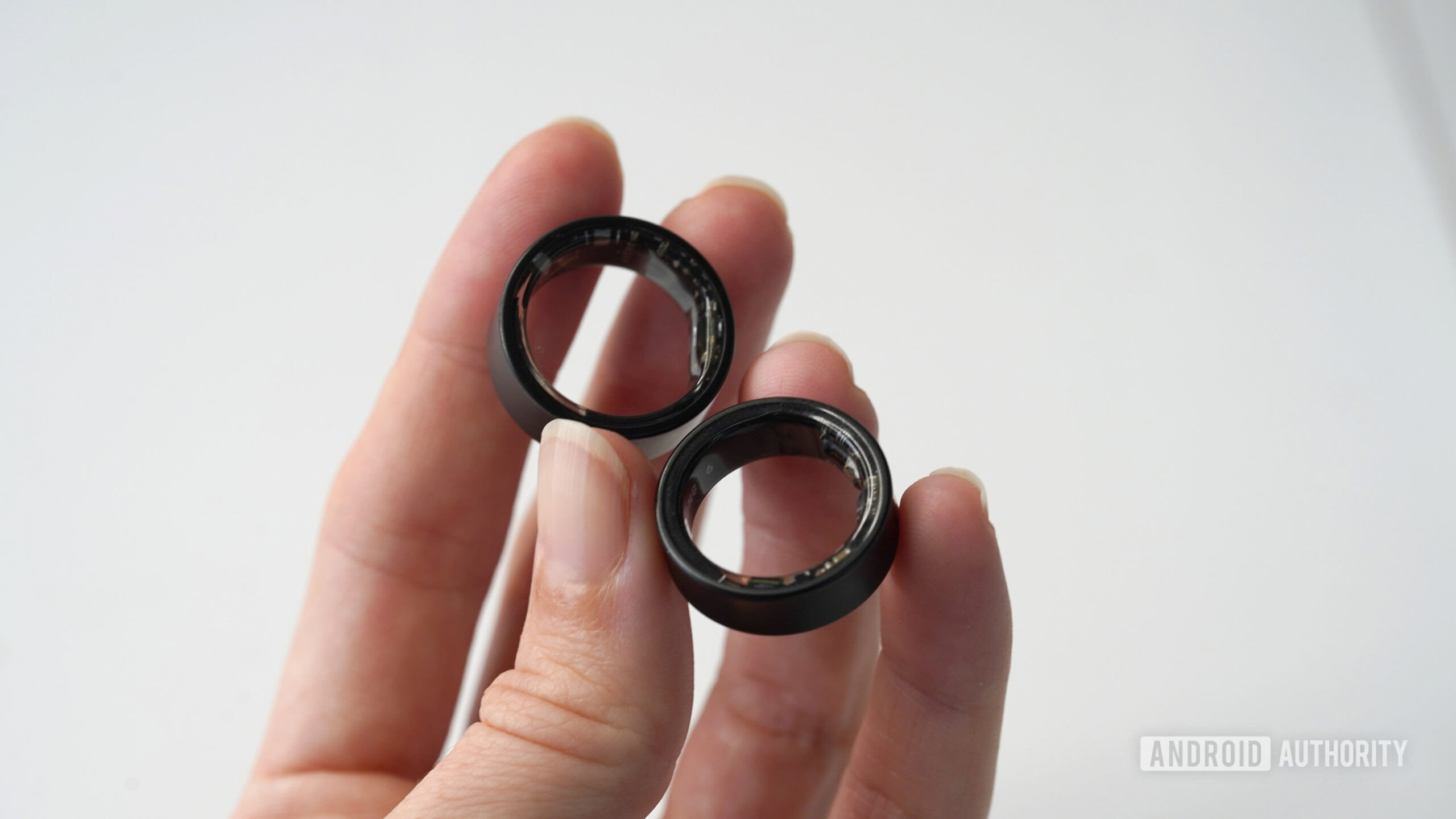
The smart ring arena continues to heat up, with new competitors joining the scene regularly. The Samsung Galaxy Ring represents one of the first finger-based trackers from an established wearables brand and offers useful integration within the Samsung ecosystem. The Ultrahuman Ring Air enters the competition with a lightweight build and a unique user experience. To dig into the pros and cons of each device further, we compare the Ultrahuman Ring Air vs Samsung Galaxy Ring.
Ultrahuman Ring Air vs Samsung Galaxy Ring: At a glance
- Both the Ultrahuman Ring Air and Samsung Galaxy Ring track basic health and activity stats, including sleep.
- Neither the Ultrahuman Ring Air nor the Samsung Galaxy Ring require a subscription.
- The Galaxy Ring offers unique integration with Samsung phones and Galaxy smartwatches.
- The Ultrahuman Ring Air features PowerPlugs, an app store-like experience for accessing more tools.
- Only the Ultrahuman Ring Air is compatible with iOS phones.
Ultrahuman Ring Air vs Samsung Galaxy Ring: Specs
| Ultrahuman Ring Air | Samsung Galaxy Ring | |
|---|---|---|
| Display | Ultrahuman Ring Air No display | Samsung Galaxy Ring No display |
| Dimensions and weight | Ultrahuman Ring Air 8.1mm x 2.45-2.8mm 2.4-3.6g ( size dependent) | Samsung Galaxy Ring 7.0 x 2.6mm 2.3-3.0g (size dependent) |
| Sizing | Ultrahuman Ring Air 7 sizes (6-12) | Samsung Galaxy Ring 9 sizes (5-13) |
| Battery | Ultrahuman Ring Air Up to 6 days 100% in 90 minutes Puck-style charger and USB-C cable | Samsung Galaxy Ring Up to 7 days 40% in 30 minutes Clamshell-style charging case with built-in 361mAh battery |
| Sensors | Ultrahuman Ring Air Infrared Photoplethysmography (PPG) sensor | Samsung Galaxy Ring Accelerometer |
| Connectivity | Ultrahuman Ring Air BLE | Samsung Galaxy Ring BLE 5.4 |
| Compatibility | Ultrahuman Ring Air iOS 15 or later | Samsung Galaxy Ring Any Android phone that can install Samsung Health app |
| Colors | Ultrahuman Ring Air Titanium with Tungsten Carbide Carbon coating | Samsung Galaxy Ring Titanium Black, Titanium Silver, Titanium Gold |
Ultrahuman Ring Air vs Samsung Galaxy Ring: Design, size comparison, and colors
Kaitlyn Cimino / Android Authority
At a glance, both Ultrahuman and Samsung offer shoppers a clean, minimalist fitness tracker intended to blend with traditional jewelry. The Air’s biggest selling point is that it really is comfortably lightweight, weighing in at 2.4 to 3.6 grams (depending on your size). This is similar to the Galaxy Ring despite the Air being slightly wider. I do, however, find the Air slightly more comfortable thanks to the smoother interior (less bulbous sensors). The device is available in five colorways: Raw Titanium, Aster Black, Matte Gray, Bionic Gold, and Space Silver. It’s also available in sizes 6 through 12.
The Galaxy Ring features a slightly narrower 7mm band and a thin 2.6mm build. The sides of the ring are concave to create a sleeker visual impression. The device is available in Gold, Silver, and Black in sizes 5 through 13. Notably, rumors suggest the company may be adding two additional sizes to the lineup as well.
Both Samsung and Ultrahuman utilize sizing kits to help shoppers purchase the correct fit. This process includes trying on plastic models of each ring size to determine which you should order for your official device.
Ultrahuman Ring Air vs Samsung Galaxy Ring: Features
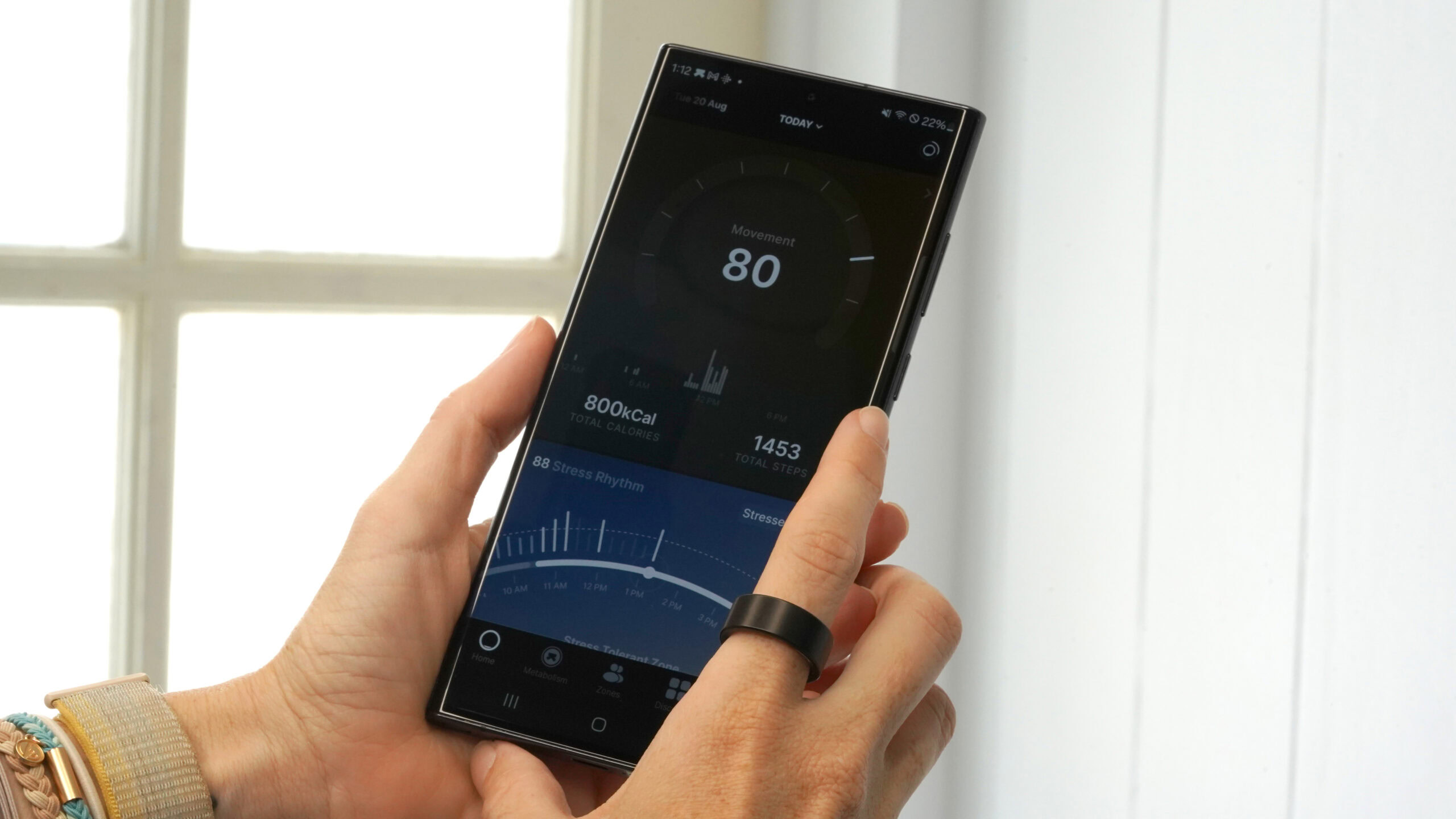
Kaitlyn Cimino / Android Authority
The Ultrahuman Ring Air and Galaxy Ring both track a host of useful health and fitness tracking data, including heart rate, HRV, stress, sleep, temperature, and SpO2 as well as basics like steps, distance, and calories. The devices also each automatically track a limited number of workouts though, during my review periods, I found that both platforms need refinement regarding activity tracking.
In addition to collecting all the usual metrics, the Ultrahuman companion app analyzes users’ data to create helpful overarching scores. This includes a comprehensive sleep index and movement index plus a dynamic recovery score and a stress rhythm score. These scores, as well as personalized sleep and activity goals, help users digest their data and provide actionable insights. With that said, the app is not entirely approachable and can feel both overwhelming and lacking at the same time.
Additional features of the app include access to workouts and educational content, the ability to sync the Ring Air to the brand’s M1 monitor for metabolism insights, and the option to create friend groups within the Ultrahuman app. Headlining the Ultrahuman Ring Air experience is PowerPlugs, an app store-like platform that allows users to access additional tools and features ranging from AFib detection to Cycle Tracking and much more. Some of these add-on tools are free while others require a fee.
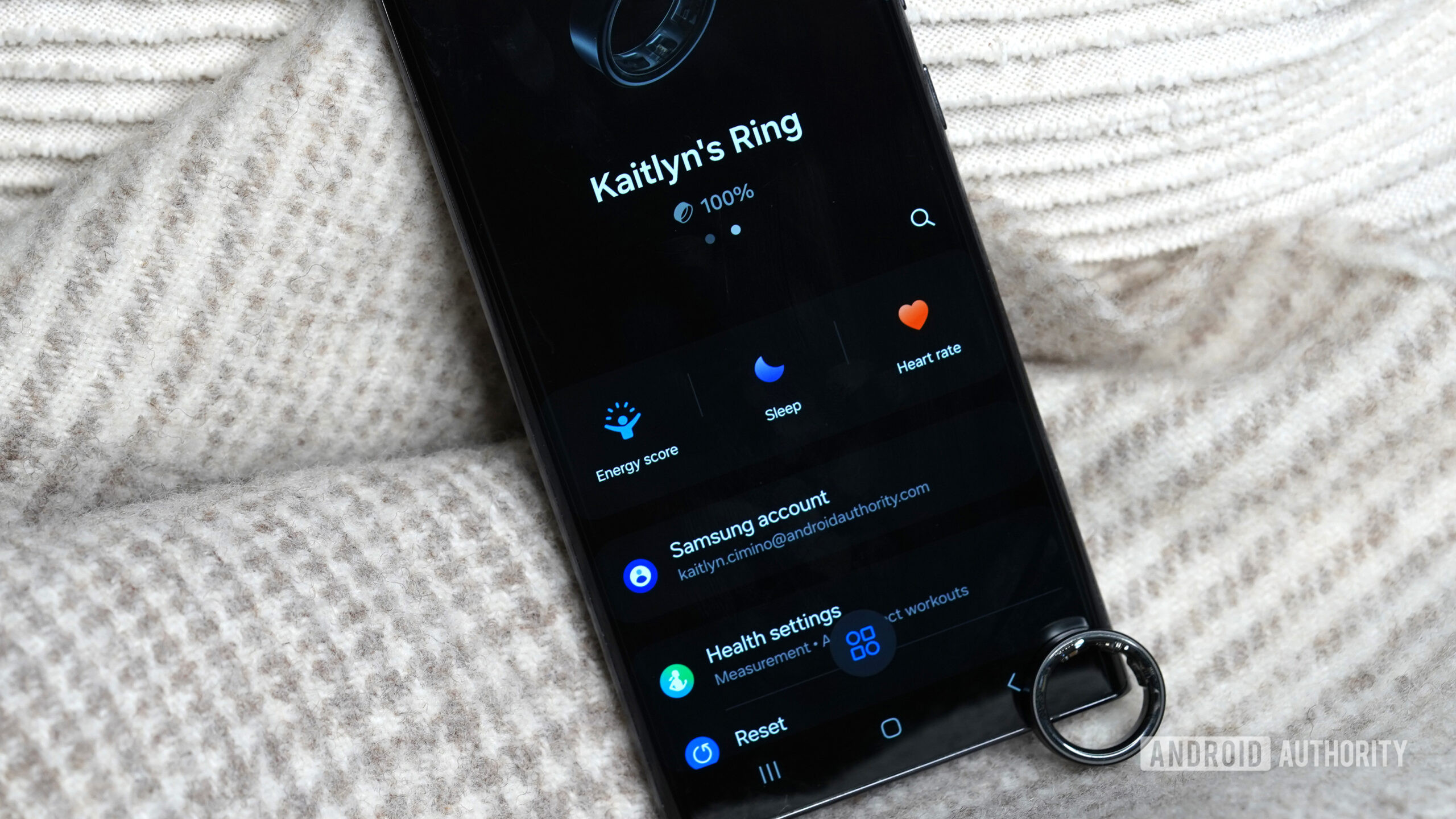
Kaitlyn Cimino / Android Authority
The Galaxy Ring collates users’ data in Samsung Health, the same companion app used by the Galaxy Watch lineup. The app is not especially detailed or robust but Samsung does a good job presenting users with the basics. The latest improvements to the Samsung ecosystem include a new metric titled Energy score, which leans toward a more holistic approach to wellness tracking, and additions to the platform’s sleep-tracking offerings. With a Samsung phone, Galaxy Ring users can also access Samsung’s AI-generated Wellness Tips.
In fact, the Galaxy Ring offers a particularly solid experience to users with a Galaxy phone or Galaxy Watch, as many of the ring’s features can only be used within the Samsung Galaxy ecosystem. For example, Galaxy phone users can rely on the ring’s double pinch gesture to control their phone’s camera and dismiss alarms. They can also use Samsung Find My to locate the ring and to flash its LED lights. Galaxy Watch users can wear their ring and watch simultaneously and the Samsung Health app will automatically combine all metrics recorded. It will also prioritize which sensors to record data from to stretch battery life up to 30%.
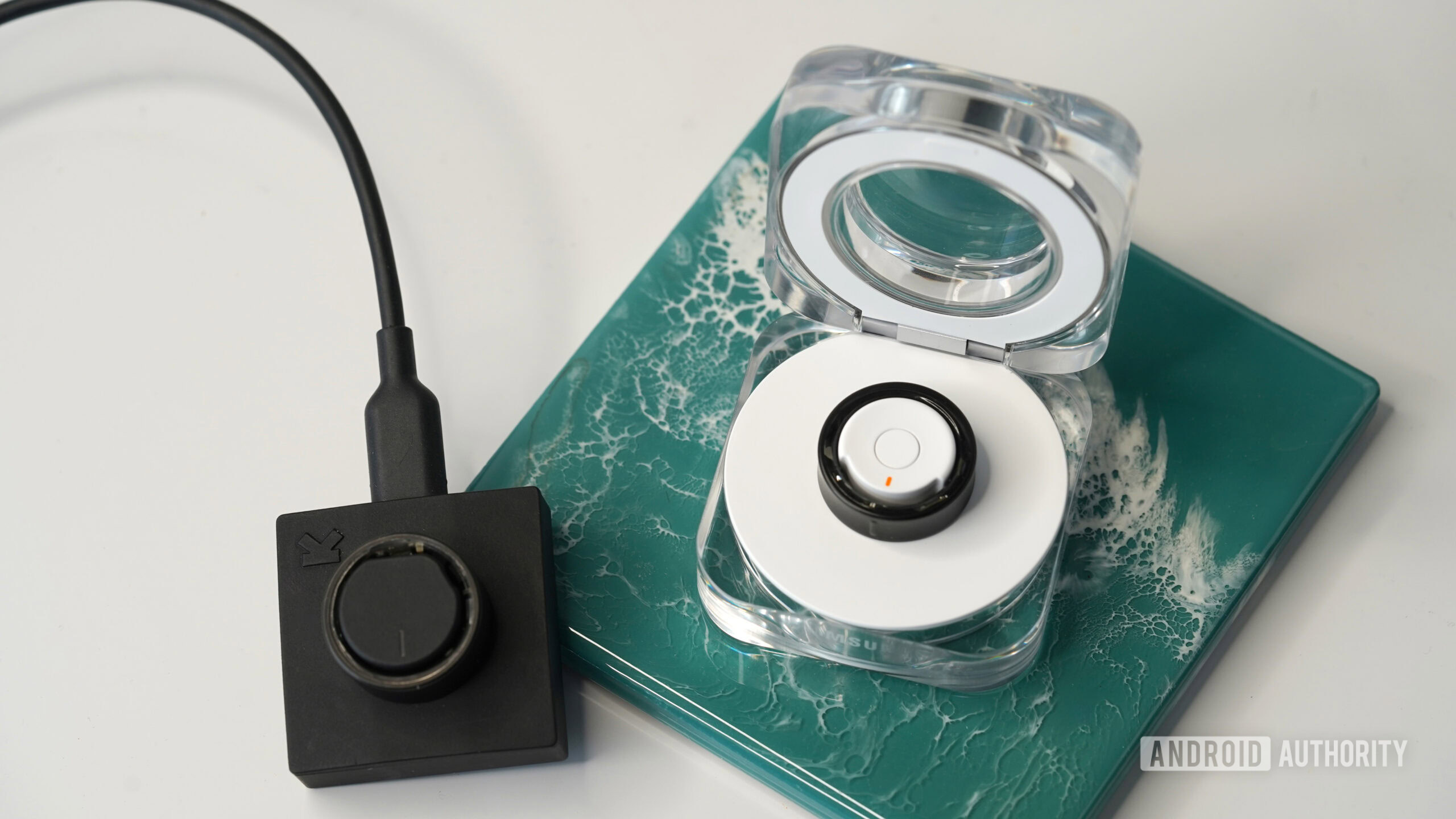
Kaitlyn Cimino / Android Authority
My favorite distinguishing feature of the Samsung Galaxy Ring compared to the Ultrahuman Ring Air is the device’s charging case. The Ultrahuman Ring Air powers up on a cradle-style charging puck with a USB-C cable. The Galaxy Ring, on the other hand, utilizes a clamshell charging case, which features a built-in battery of its own. Without an outlet nearby, the case can charge the Galaxy Ring from 0 to 100% 1.5 times before needing to charge back up itself. This means easier charging on the go. Though the Ultrahuman Ring Air claims up to six days of battery life between charges, the ring lasted under four days during my review. Unfortunately, the Galaxy Ring also fell short of its claim, landing at about the same 4-day limit.
Ultrahuman Ring Air vs Samsung Galaxy Ring: Price and availability
Ultrahuman Ring Air: $349
Samsung Galaxy Ring: $399
Technically, both Samsung and Ultrahuman offer smart ring experiences sans subscriptions (at least for now), but both have fairly expensive asking prices. The Ultrahuman Ring Air runs shoppers $349 at check out, with the option to add a personal engraving to for an extra $39. The Galaxy Ring is available for a pricey one-time fee of $399. This is certainly expensive, especially compared to the company’s full-fledged smartwatches which offer a more robust experience. The Air and Galaxy Ring are available directly from Ultrahuman.com and Samsung.com respectively, as well as from third-party retailers such as Amazon. As mentioned, the Ultrahuman Ring Air features the PowerPlugs platform with additional tools available for an added fee. Rumors also suggest that the Galaxy Ring may not remain a subscription-free device indefinitely.
Ultrahuman Ring Air vs Samsung Galaxy Ring: Which should you buy?

Kaitlyn Cimino / Android Authority
Neither the Ultrahuman Ring Air nor the Galaxy Ring is without its flaws. During my review periods, both devices struggled in terms of accuracy as well as battery life. However, the rings are exceptionally comfortable and provide a wide range of basic health and activity tracking, especially for such a small form factor. Anyone interested in passive wellness monitoring and unobtrusive overnight tracking will be happy with a smart ring. For Samsung users, I recommend the Samsung Galaxy Ring. The device offers unique integration within the ecosystem plus an approachable and familiar companion app experience thanks to Samsung Health. I especially love the ring’s charging case and feel the device has a lot of promise given its name-brand support.
Would you rather buy an Ultrahuman Ring Air or a Samsung Galaxy Ring?
0 votes
If you are an iOS user, however, the Samsung Galaxy Ring is not an option. Even if you do have an Android phone, the Ultrahuman Ring Air is worth considering if it is not specifically a Samsung phone. The company’s PowerPlugs platform is a unique avenue with a ton of potential and it’s clear Ultrahuman has big plans to continue expansion. Accuracy on the device is not where I would want it to be ideally, but I am hopeful we will see refinement over time.

Ultrahuman Ring Air
Lightweight build, comfortable fit
PowerPlug platform has potential
AFib detection
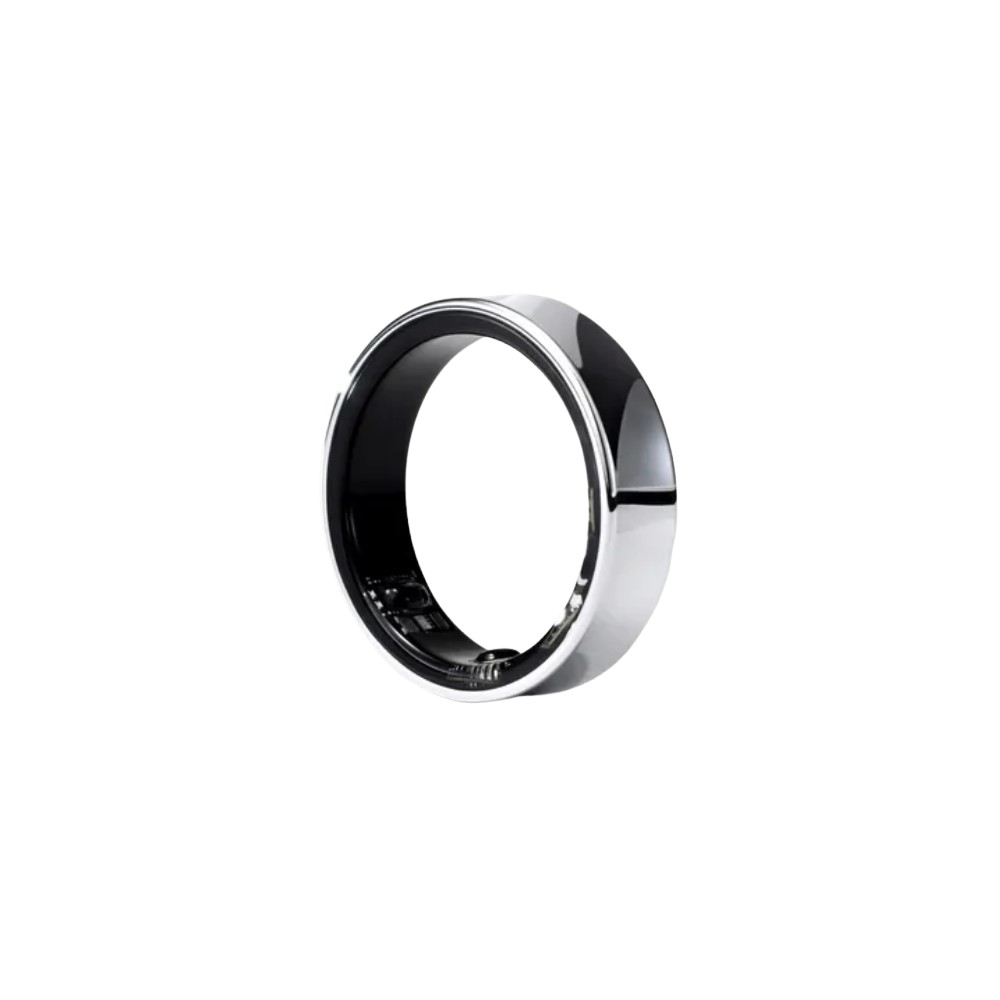
Samsung Galaxy Ring
Lightweight, comfortable build
Convenient case-style charger with built-in battery
No subscription fee
Ultrahuman Ring Air vs Samsung Galaxy Ring: FAQ
Neither the Ultrahuman Ring Air nor the Samsung Galaxy Ring requires a subscription.
The Samsung Galaxy Ring and Ultrahuman Ring Air can each be worn on the ring, index, or pointer finger.
Yes, both the Samsung Galaxy Ring and Ultrahuman Ring Air count steps.
Source link




